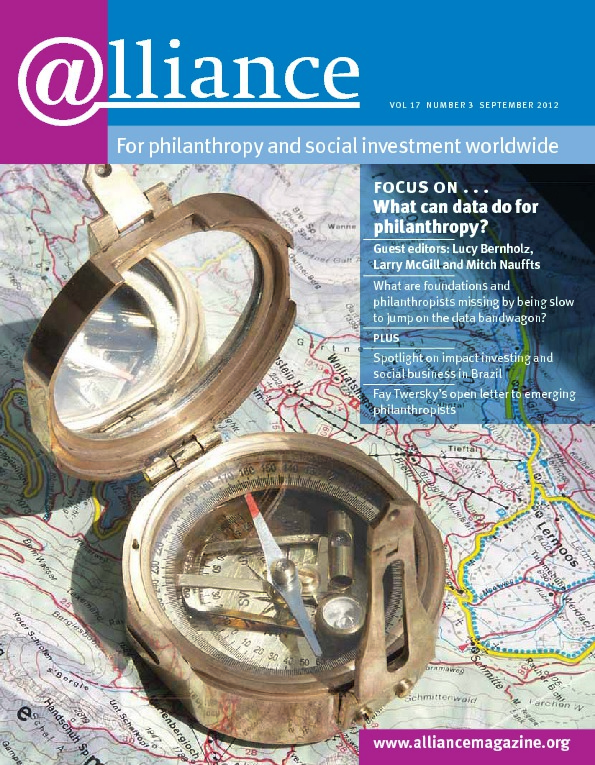When Larry McGill and I first talked about the possibility of doing a special feature on data and philanthropy over two years ago, I was open with him: I was afraid it might be boring. This seemed rude as data are so much the lifeblood of the Foundation Center, but I had to say it. Are data just for geeks?
For me the way round the ‘will it be boring?’ dilemma was to steer away from describing new ‘tools’ and new technological developments and to focus single-mindedly on what data can do for philanthropy.
I think of it in practical terms. If I were a foundation staff person or a philanthropist wanting to help improve girls’ attendance at secondary school in Uganda, I would ideally have at my fingertips information about girls’ and boys’ enrolment rates, school attendance rates, dropout rates, etc. I would also want to know what other funders were doing in this area and what success they were having – leaving aside the vexed question of how success is measured! Hopefully, having access to all this information would enable me to make better decisions about where my funds should go.
The Foundation Center’s grant mapping does provide a lot of this information, but it is only a first step. It doesn’t cover all US foundations, let alone non-US foundations or individual philanthropists or impact investors. How to collect all the separate bits of information and how to aggregate them and make use of them – this is where the tools and the technological advances come in. How to persuade foundations to share information about what they are doing, especially about what has worked and what hasn’t, is another issue entirely.
But it goes further than such practical considerations. Lucy Bernholz encourages us to ‘imagine what philanthropy and social investing will look like when they really get built around data’. We’re still at the stage of adding data to existing practices, she says. When we start to see new practices emerge out of existing data, ‘when data become the GPS of our philanthropy, we’ll see some big changes just as we have in other fields’.
As with all bandwagons, it’s important not to get carried away. Several of our contributors point to potential pitfalls, especially ‘the danger of overpromising’ and relying too much on data. But the potential payoffs are great. Talking about what data can do for philanthropy involves looking both at the real and practical advances being made now and at the possibilities of a transformed future. Data aren’t just for geeks. (Final note: is ‘data’ singular or plural? I would have gone with singular but my guest editors were adamant in their opposition, so plural it is …)



Comments (0)